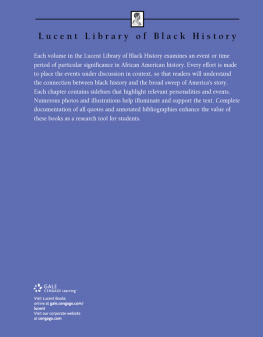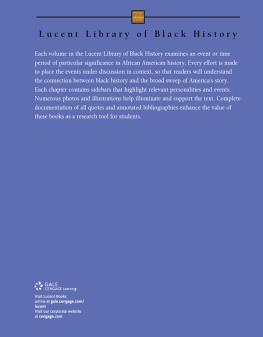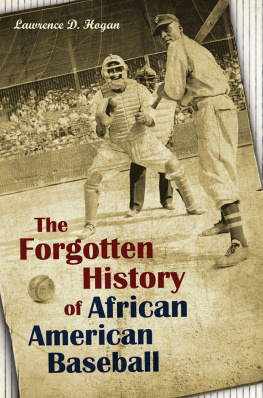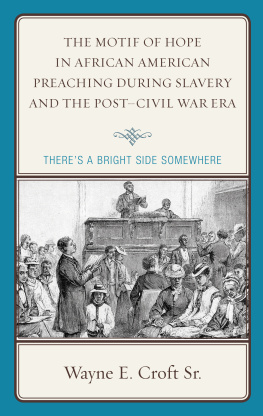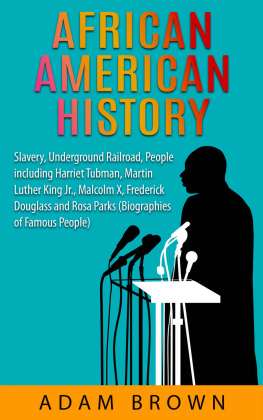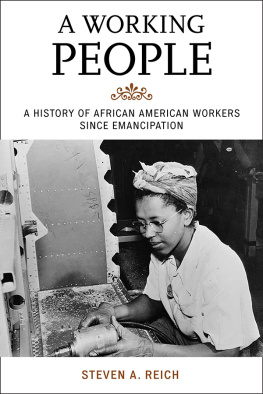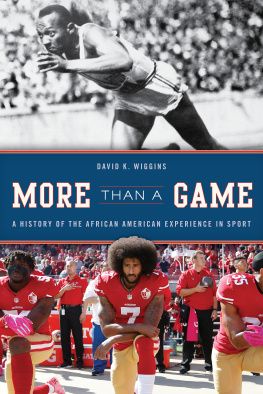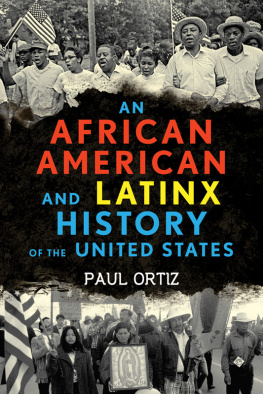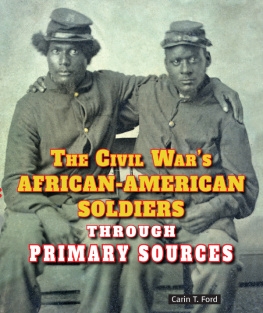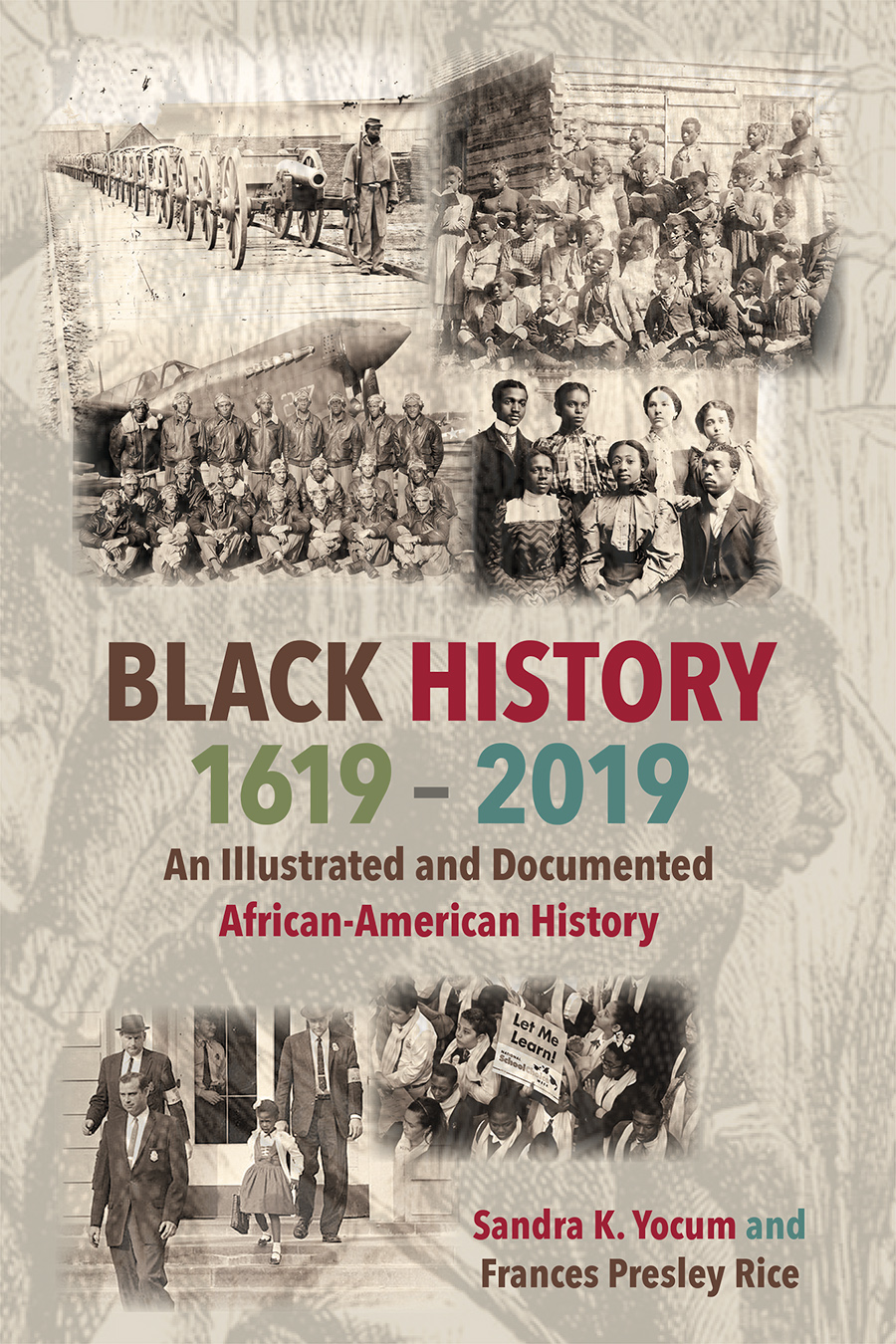Black History 1619-2019
An Illustrated and Documented Afr ican-American Histo ry
Sandra K. Yocum
and
Frances P. Rice

Paragon House
Published in the United States by
Paragon House
St. Paul, Minnesota
www.ParagonHouse.com
Copyright 2021 by Sandra K. Yocum
All rights reserved
All photographs and images included as fair use within historical context and are in the public domain, except where otherwise attributed. Permission was acquired from copyright holders of copyrighted photos and images. Getty, Alamy, and Shutterstock stock photos were purchased as required. Documentation of copyright permissions and purchase receipts are in the Yocum African-American History Association archives.
Library of Congress Cataloging-in-Publication Data
Names: Yocum, Sandra K., 1944- author. | Rice, Frances P., author.
Title: Black history, 1619-2019 : an illustrated and documented African-American history / Sandra K. Yocum and Frances P. Rice.
Description: Saint Paul : Paragon House, 2021. | Includes bibliographical references. | Summary: "Black History 1619 - 2019: An Illustrated and Documented African-American History is dedicated to the restoration and preservation of the events which shaped the lives and contributions of African-Americans from the experience of the era of slavery until modern times. The book contains fourteen well-researched chapters starting with Chapter 1, Colonial Domestic Slave Trade (1619 - 1775), and ending with Chapter 14, Post-Civil Rights Movement (1967 - 2019). Each chapter is dedicated to revealing the truth and correcting misrepresentations about black history. Setting the record straight with black history using facts and primary sources and over 300 photographs and illustrations is the antidote to historical revisionism. This book was written to promote awareness, to preserve and disseminate information, and to restore the integrity of African-American history in the black community in the United States of America"-- Provided by publisher.
Identifiers: LCCN 2020007495 (print) | LCCN 2020007496 (ebook) | IS BN 9781557789440 (hardcover) | ISBN 9781610831246 (ebook)
Subjects: LCSH: African Americans--History. | African Americans--History--Sources. | African Americans--History--Pictorial works.
Classification: LCC E184.6 .Y63 2021 (print) | LCC E184.6 (ebook) | DD C 973/.0 496073--dc23
LC record available at https://lccn.loc.gov/2020007495
LC ebook record available at https://lccn.loc.gov/2020007496
Contents
Acknowledgments
A FAMOUS AUTHOR whose birth name was Eric Arthur Blair, but is known best by his pen name, George Orwell, wrote: The most effective way to destroy people is to deny and obliterate their own understanding of their history.
Our quest to avert the obliteration of the understanding of African-American history led us to write this book, and we extend appreciation and gratitude to the following persons, our husbands, who helped to make this book a reality:
Kenneth L. Yocum whose support inspired us to achieve our dreams.
Robert Peter Rice who provided encouragement and substantial financial support.
Publisher's Note
The history of African-Americans is an integral part of the history of United States. Both as slaves and free people, African-Americans were involved with the U.S. founding and entire history. Among Paragon House's books on African-American history is the story of Phillis Wheatley, an African-American girl who became the "Poet Laureate" of the American Revolution, inventing the image of Columbia with her flowing gown on early American literature and later presented by Columbia studios before their motion pictures. In this book you will learn of other blacks involved in the founding and throughout the history of the United States.
The life of many Africans arriving on slave ships and sold to southern plantation owners was particularly troubling. Some were whipped, raped, and treated as objects. Black slaves had to endure many great hardships. Many had to learn to read and worship secretly, yet, as L.H. Whelchel describes in History and Heritage of African-American Churches , slave families and communities were very strong, religious, and resourceful. Some slaves had houses, some had rooms in a master's house, others lived in filthy barns. Cotton-picking was the most labor-intensive occupation, but blacks learned many different skills like sewing, blacksmithing, and carpentry.
Indentured servitude was common in Ancient Rome, where people living in protectorates would work for Roman citizens in return for their freedom and Roman citizenship after a few years. Many of the first Americans got their passages funded to America in exchange for indentured servitude. Most were Europeans but some Africans came as indentured servants as well. In the early 18th century, a few freed African-Americans owned land and had their own slaves. In one episode of PBS "Finding Your Roots," Henry Louis Gates, Jr., shocked African-American Suzanne Malveaux with the knowledge that her roots included a black slave owner. Gate's program reminds us that, despite the widespread enslavement of blacks in the South there is no universal African-American narrative.
Many blacks in the United States today came after the Civil War and have no relation to slavery, but they may have lived under colonial rule. And, most whites, Latinos, and Asians living in the United States also descend from immigrants who arrived after slavery was abolished. This is a larger history of the United States in which African-Americans have always had a part, contributing to political rights, the economic prosperity, and the cultural traditions all Americans enjoy today.
Most Americans today have limited and stereotyped views of African-Americans. Such views often stem from research focused narrowly on African-American slavery in its worst forms, and then widely publicized as a universal story. Such accounts fail to convey the breadth of African-American history or the depths of white anti-slavery protests. James McPherson, professor emeritus of history at Princeton University said of the New York Times 1619 Project designed as a history of 400 years of slavery in America:
I was disturbed by what seemed like a very unbalanced, one-sided account, which lacked context and perspective on the complexity of slavery.
And, Gordon Wood, Pulitzer Prize-winning professor of history emeritus from Brown University said:
I was surprised, as many other people were, by the scope of this thing, especially since its going to become the basis for high school education and has the authority of the New York Times behind it, and yet it is so wrong in so many ways.
The New York Times reluctantly admitted to some of the worst mistakes in the 1619 Project when they were later exposed. But, the fact that a younger Pulitzer Prize winning journalist could have it so wrong and still get published by the New York Times, as well as the subsequent Pulitzer Prize Committees awarding the New York Times the top honor in commentary for its 1619 Project, show how far the current generation and major media misunderstand and misuse U.S. history.
In this book, Yocum and Rice have created an antidote to such narratives by providing a broad well-researched overview of African-American history backed by hundreds of illustrations and photos. It was like a breath of fresh air for me to see the history of African-American life presented here, in a fullness and richness that I have personally experienced and learned.


